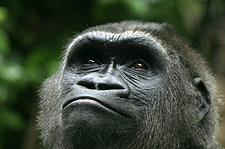It is a very great pleasure to be able to give this lecture tonight. I have chosen a title for the lecture that is perhaps a little provocative"”partly because I believe it will get a good discussion going afterwards. But let me begin by telling you a little about myself, before we get down to the real meat of this intriguing subject.
If I had been told that I was to be giving such a lecture this evening when I was growing up in Northern Ireland back in the 1960s, I would have been very surprised for two reasons. First, my horizons were rather limited. Travelling more than 20 kilometres was a major adventure. We did this once a year, when we took our annual holidays at such exotic locations as Duffy's hotel in Dunfanaghy, County Donegal. The first time I travelled to London, I nearly died with excitement. It was so much more exciting than the Donaghadee Donkey Derby. So to be in Sydney"”well, you can see my point.
But the second reason is perhaps more interesting. Like many who grew up during the late 1960s, I was an atheist. Northern Ireland was noted for its religious tensions, which exploded into violence while I was in my final years at school, living in Belfast. It seemed obvious to me that religion was the cause of violence, just as it seemed equally clear that the elimination of religion would lead to peace. I was into Marxism at that time"”again, like many others"”and found its predictions of the triumph of socialism and the demise of religion intellectually compelling. And, more than that, I was studying the natural sciences, which seemed to me to leave no conceptual space for God. God was a redundancy, a relic from the past that seemed to have no place in the future of things.
Now atheists come in different sorts. There is the rather gracious type who doesn't personally believe in God, but is very happy if other people find the idea meaningful. And then there is the rather aggressive, intolerant sort, who regards people who believe in God as fools, knaves and liars, and wants to rid the world of them. I have to tell you that I was in that second category.
Part of the reasoning that led me to this conclusion was based on the natural sciences. I had specialised in mathematics and science during high school in preparation for going to Oxford University to study chemistry in detail. While my primary motivation for studying the sciences was the fascinating insights into the wonderful world of nature they allowed, I also found them to be a highly convenient ally in my critique of religion. Atheism and the natural sciences seemed to be coupled together by the most rigorous of intellectual bonds. And there things rested, until I arrived at Oxford in October 1971.
Chemistry, and then molecular biophysics, proved to be intellectually exhilarating. At times, I found myself overwhelmed with an incandescent enthusiasm as more and more of the complexities of the natural world seemed to fall into place. Yet, alongside this growing delight in the natural sciences, which exceeded anything I could have hoped for, I found myself rethinking my atheism. It is not easy for anyone to subject their core beliefs to criticism; my reason for doing so was the growing realisation that things were not quite as straightforward as I had once thought. A number of factors had converged to bring about what I suppose I could reasonably describe as a crisis of faith.
Atheism, I began to realise, rested on a less-than-satisfactory evidential basis. The arguments that had once seemed bold, decisive and conclusive increasingly turned out to be circular, tentative and uncertain. The opportunity to talk to Christians about their faith revealed to me that I understand relatively little about Christianity, which I had come to know chiefly through the not-always-accurate descriptions of its leading critics, such as Bertrand Russell and Karl Marx. Perhaps more importantly, I began to realise that my assumption of the automatic and inexorable link between the natural sciences and atheism was rather naïve and uninformed.
My doubts about the intellectual foundations of atheism began to coalesce into a realization that atheism was actually a belief system, where I had assumed it to be a factual statement about reality. I also discovered that I knew far less about Christianity than I had assumed. As I began to read Christian books and listen to Christian friends explaining what they actually believed, it gradually became clear to me that I had rejected a religious stereotype. I had some major rethinking to do. So in the end, I turned my back on one faith and embraced another. Although I am no longer an atheist, I retain my respect for it, and continue to be interested in atheism as a major belief system that deserves careful, respectful, yet critical attention.
In this talk, I thought that I would look at some areas of interest in relation to atheism, especially in relation to the cultural changes that are taking place in the west at the moment, which we often refer to loosely as "postmodernism'. But let me begin by looking at some classic areas of debate which remain intriguing. Let's consider three familiar atheist arguments. There are, of course, others, and I would be very happy to explore any of these afterwards in our time of discussion. On the streets, the three big objections to religion tend to be these: religion leads to evil; God is a consoling delusion for losers; and science has disproved God. Let's have a look at these.























